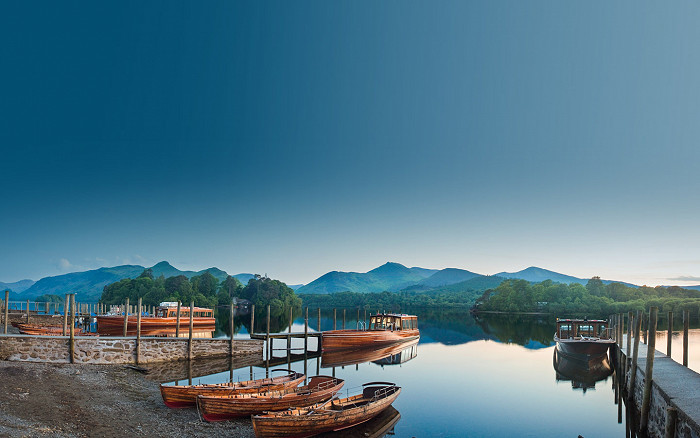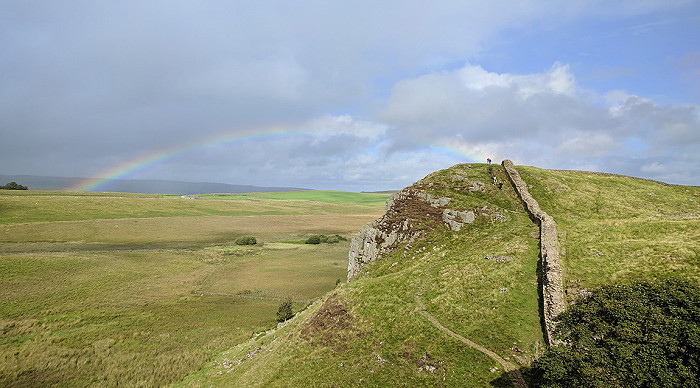Managing your booking with Club Europe couldn’t be easier.
Click below for details of our user-friendly client portal.
Find out moreTel: +44 208 772 6446




“Club Europe offer a great personal service, helpful and always proactive and patient. They are really positive and professional.”
Alexandra, Head of Physics, Alleyn’s School London
“I have had excellent service as always. We used the sites as sources of historical evidence to aid GCSE performance. All aspects of the trip...”
Patrick, History Teacher, Hampshire

This exhilarating educational school trip targets the IB Diploma Geography Programme, as well as providing fun activities and cultural visits to support the CAS aspect of the IB Diploma.
Students experience the wild but beautiful English Lake District, a UNESCO World Heritage site since 2017; an ideal environment to enhance students’ knowledge of geography and culture. Groups stay at our specialist centre, which occupies a dramatic setting at 300m looking across the Keswick area with its rugged fells, glaciated valleys and nestling villages. The centre's tutors are experienced teaching staff with specialist knowledge and fieldwork expertise.
The itinerary can be adapted to suit a more service learning-focused programme, or even a more activity-based programme with exciting team-building excursions such as GoApe, bushcraft skills and canoeing.
Day 1
Arrive in Manchester and transfer to the centre. Students are introduced to the Lake District National Park world heritage site.
Day 2
Students undertake a fieldwork investigation for the IB internally assessed fieldwork report. After the investigation, all fieldwork data is processed and analysed. Students can choose from a range of investigations: Downstream changes on a local river; Causes and management of flooding in the Lake District National Park; Coastal management on the Solway Coast glacial landforms of the Lake District National Park; or the sustainability of tourism on the Lake District National Park.
Day 3
Cultural day out. Students spend a day looking at Cumbria’s rich cultural heritage. For example: Dove Cottage, the Grasmere home of William Wordsworth; Hill Top, the Hawkshead home of Beatrix Potter; and Wordsworth House, the childhood home of William and Dorothy Wordsworth in Cockermouth.
Day 4
CAS day. A chance for students to challenge themselves by scaling a local mountain or scrambling up a Lake District ghyll. Students can give something back to the national park by taking part in a practical conservation task, such as removal of the invasive species Himalayan Balsam.
Day 5
Review, Growth and Personal Learning. Students develop their awareness of their own strengths and areas for growth by completing a series of reflection and reviewing activities. Transfer back to Manchester.
Day 6
Before departure, there is the opportunity to enjoy Manchester, whether it be a tour of Old Trafford stadium, a football match or simply exploring this vibrant city.
Optional Themes, developing knowledge of case studies, geographic models and theories. There will also be specific examples and links to geography concepts, which are crucial for students to demonstrate in external assessment.
Throughout the course skills will be developed integral for the Internal Assessment report including methods of field investigation, written analysis including data presentation and analysis, statistics and GIS.
Students will also learn more about the environmental issues affecting the Lake District National Park and how they are being approached.
Aim – to investigate downstream changes on a local river. Students carry out an investigation to see how factors such as river discharge, velocity, cross section and load change with distance from the source. The data collected by students will be analysed in detail on return to the centre.
Flooding and Flood Mitigation. Aim – to investigate the causes and management of flooding in the Lake District National Park. Focusing on the River Greta catchment, students will investigate how local features of the drainage basin led to flooding in the town of Keswick. In Keswick, which was flooded during Storm Desmond in 2015, students look at how flooding is managed.
Aim – to investigate the impact of coastal management on the Solway Coast. Students visit the Solway Coast Area of Outstanding Natural Beauty where they investigate how coastal defences around the town of Silloth have interacted with coastal processes.
Aim – to investigate the glacial landforms of the Lake District National Park. Students walk through the classic postglacial in the valley of Easedale to identify glacial landforms.
Students take on one of the Lake District iconic fells. This walk will be an opportunity for students to challenge themselves and work together. Students will be able to test and improve their navigation skills.
This activity involves walking and scrambling up Honister ghyll, using coordination, resilience and teamwork to clamber over rocks, dunk under waterfalls and into pools, climb up small rapids and crawl through tunnels. There are lots of options on this ghyll scramble and it can be made as easy or as challenging as appropriate. Honister Ghyll is accessed from the village of Seatoller at the end of the Borrowdale valley.
Students undertake conservation on the centre grounds or a local nature site which could include removal of invasive species such as Himalayan Balsam, brushing in the woodland, tree planting or wild flower sewing. Tasks vary depending on season or jobs needed. This is a great opportunity to give something back to the environment and help look after the Lake District World Heritage Site.
Our centre occupies a dramatic setting at 300m on a south facing slope of Blencathra in the Lake District National Park and offers an unparalleled panorama. Fieldwork opportunities place in and amongst the rugged fells, magnificent glaciated valleys, and nestling villages and towns creating this view.
The centre generates its own hydro-electric power and is heated using renewable biomass. Purposely converted from a former Sanatorium, these unique buildings are equipped with interactive whiteboards, visualisers, access to laptops and tablets, and WiFi throughout the centre, offering excellent facilities for schools.
The centre can provide full-board accommodation and there are places to relax during free time such as a lounge, games room and outdoor space.
We can send you mini-brochures to hand out at school and a PowerPoint presentation for assemblies and parent’s meetings you may wish to hold. We also have an interactive promotional poster you can put up on walls and noticeboards. This will make it easier for you to get your students excited about your plans.
Once your student travel tour is booked, it is safely in our hands. We will only ask for you assistance in understanding your specific requirements and you will be responsible for ensuring that the dates on our checklist are adhered to. During the process, we will also ask you to provide accurate student and teacher name, passport and dietary requirement details where appropriate.
We carefully listen to your curriculum needs and tailor-make your itinerary to achieve the best possible result.



“Club Europe offer a great personal service, helpful and always proactive and patient. They are really positive and professional.”
Alexandra, Head of Physics, Alleyn’s School London
“I have had excellent service as always. We used the sites as sources of historical evidence to aid GCSE performance. All aspects of the trip...”
Patrick, History Teacher, Hampshire
Click below for details of our user-friendly client portal.
Find out more